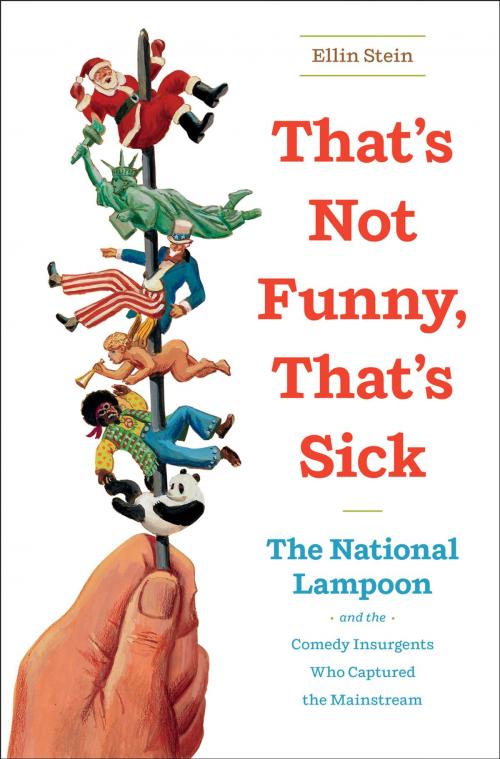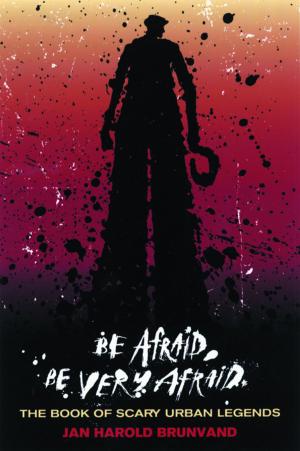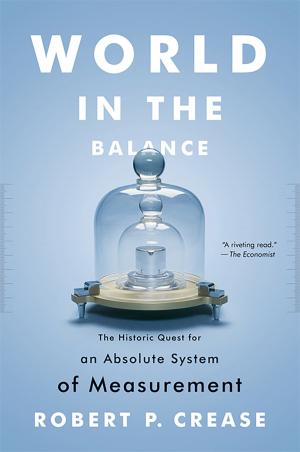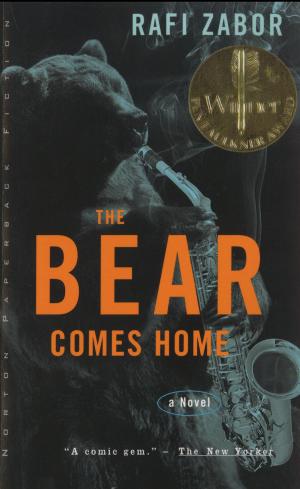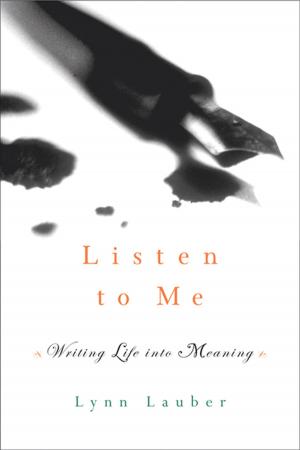That's Not Funny, That's Sick: The National Lampoon and the Comedy Insurgents Who Captured the Mainstream
Nonfiction, Entertainment, Theatre, Comedy, Biography & Memoir, Literary, Humour & Comedy, General Humour| Author: | Ellin Stein | ISBN: | 9780393084375 |
| Publisher: | W. W. Norton & Company | Publication: | June 24, 2013 |
| Imprint: | W. W. Norton & Company | Language: | English |
| Author: | Ellin Stein |
| ISBN: | 9780393084375 |
| Publisher: | W. W. Norton & Company |
| Publication: | June 24, 2013 |
| Imprint: | W. W. Norton & Company |
| Language: | English |
"Smart, knowing, and deeply reported, the definitive history of one of modern American humor’s wellsprings." —Kurt Andersen, author of Fantasyland, host of NPR’s Studio 360
Labor Day, 1969. Two recent college graduates move to New York to edit a new magazine called The National Lampoon. Over the next decade, Henry Beard and Doug Kenney, along with a loose amalgamation of fellow satirists including Michael O’Donoghue and P. J. O’Rourke, popularized a smart, caustic, ironic brand of humor that has become the dominant voice of American comedy.
Ranging from sophisticated political satire to broad raunchy jokes, the National Lampoon introduced iconoclasm to the mainstream, selling millions of copies to an audience both large and devoted. Its excursions into live shows, records, and radio helped shape the anarchic earthiness of John Belushi, the suave slapstick of Chevy Chase, and the deadpan wit of Bill Murray, and brought them together with other talents such as Harold Ramis, Christopher Guest, and Gilda Radner. A new generation of humorists emerged from the crucible of the Lampoon to help create Saturday Night Live and the influential film Animal House, among many other notable comedy landmarks.
Journalist Ellin Stein, an observer of the scene since the early 1970s, draws on a wealth of revealing, firsthand interviews with the architects and impresarios of this comedy explosion to offer crucial insight into a cultural transformation that still echoes today. Brimming with insider stories and set against the roiling political and cultural landscape of the 1970s, That’s Not Funny, That’s Sick goes behind the jokes to witness the fights, the parties, the collaborations—and the competition—among this fraternity of the self-consciously disenchanted. Decades later, their brand of subversive humor that provokes, offends, and often illuminates is as relevant and necessary as ever.
"Smart, knowing, and deeply reported, the definitive history of one of modern American humor’s wellsprings." —Kurt Andersen, author of Fantasyland, host of NPR’s Studio 360
Labor Day, 1969. Two recent college graduates move to New York to edit a new magazine called The National Lampoon. Over the next decade, Henry Beard and Doug Kenney, along with a loose amalgamation of fellow satirists including Michael O’Donoghue and P. J. O’Rourke, popularized a smart, caustic, ironic brand of humor that has become the dominant voice of American comedy.
Ranging from sophisticated political satire to broad raunchy jokes, the National Lampoon introduced iconoclasm to the mainstream, selling millions of copies to an audience both large and devoted. Its excursions into live shows, records, and radio helped shape the anarchic earthiness of John Belushi, the suave slapstick of Chevy Chase, and the deadpan wit of Bill Murray, and brought them together with other talents such as Harold Ramis, Christopher Guest, and Gilda Radner. A new generation of humorists emerged from the crucible of the Lampoon to help create Saturday Night Live and the influential film Animal House, among many other notable comedy landmarks.
Journalist Ellin Stein, an observer of the scene since the early 1970s, draws on a wealth of revealing, firsthand interviews with the architects and impresarios of this comedy explosion to offer crucial insight into a cultural transformation that still echoes today. Brimming with insider stories and set against the roiling political and cultural landscape of the 1970s, That’s Not Funny, That’s Sick goes behind the jokes to witness the fights, the parties, the collaborations—and the competition—among this fraternity of the self-consciously disenchanted. Decades later, their brand of subversive humor that provokes, offends, and often illuminates is as relevant and necessary as ever.
